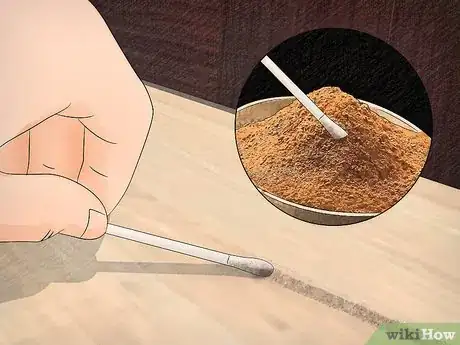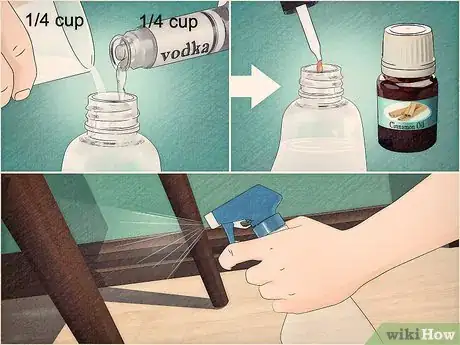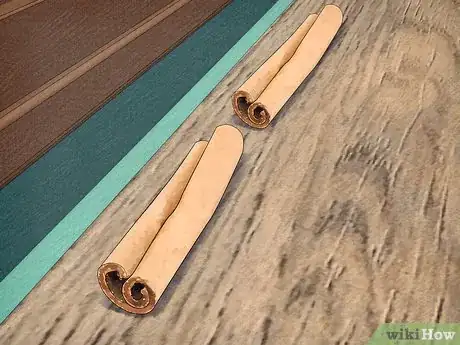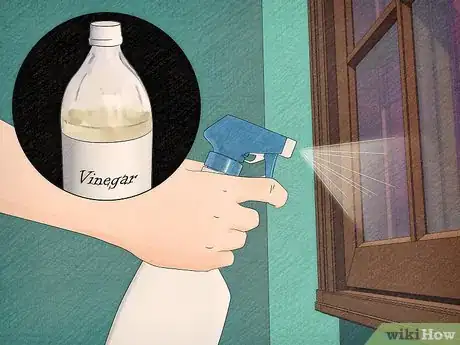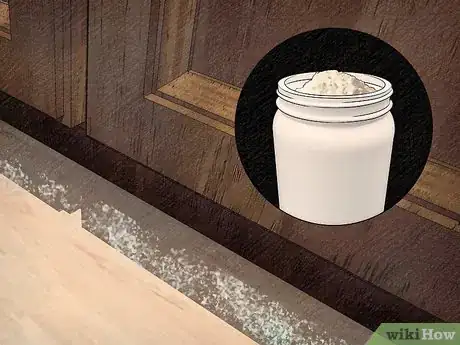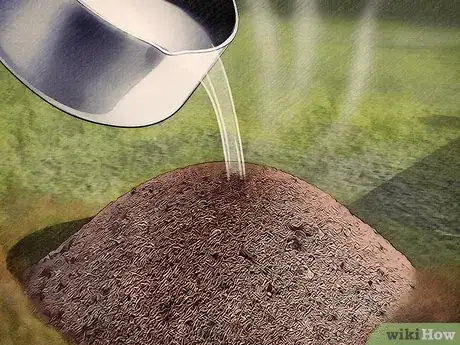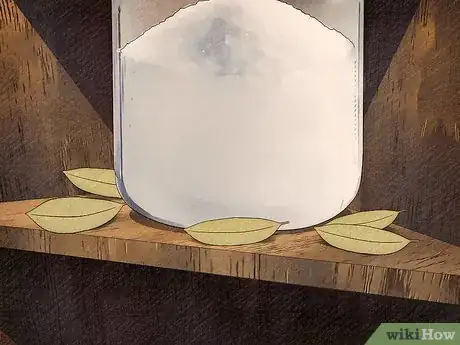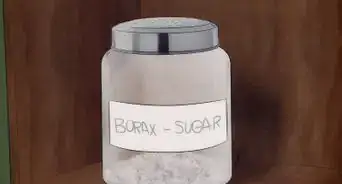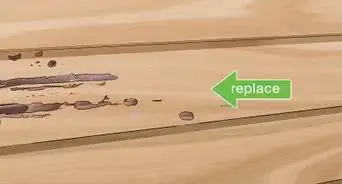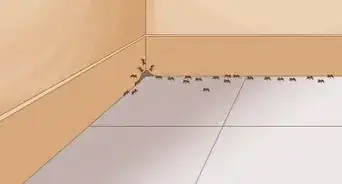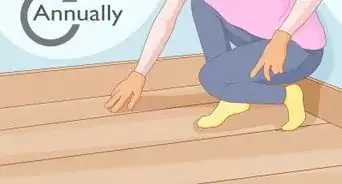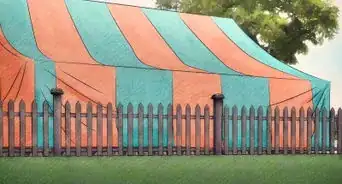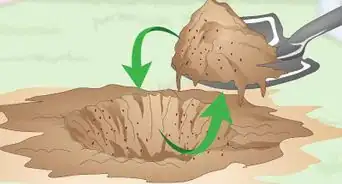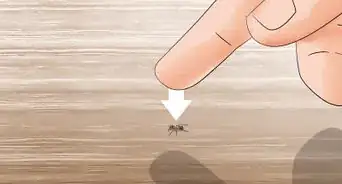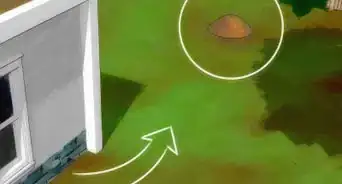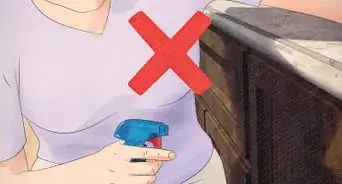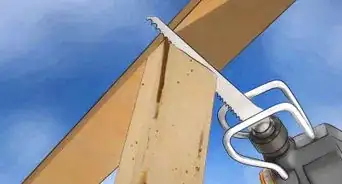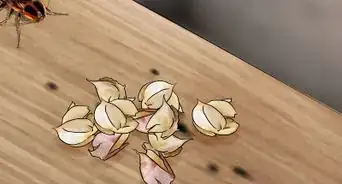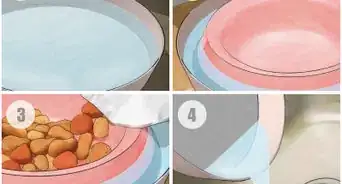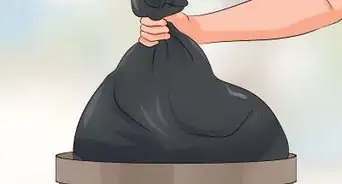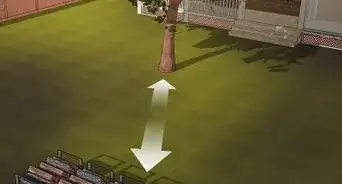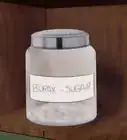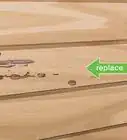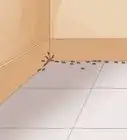This article was co-authored by wikiHow Staff. Our trained team of editors and researchers validate articles for accuracy and comprehensiveness. wikiHow's Content Management Team carefully monitors the work from our editorial staff to ensure that each article is backed by trusted research and meets our high quality standards.
There are 7 references cited in this article, which can be found at the bottom of the page.
wikiHow marks an article as reader-approved once it receives enough positive feedback. In this case, 98% of readers who voted found the article helpful, earning it our reader-approved status.
This article has been viewed 198,572 times.
Learn more...
You can use cinnamon to deter ants through the use of powder, oil, or sticks. However, cinnamon is not likely to kill ants. Rather, it just keeps them from going a certain way, and the ants usually find a way around.[1] Most natural remedies work in a similar way, but you can try a wide variety to see what works best for you.
Things You Should Know
- Sprinkle powdered cinnamon at entry points to repel ants.
- Place cinnamon sticks in front of entry points and anywhere you've seen ants.
- Dip a cotton swab in cinnamon essential oil and wipe the oil around affected areas.
Steps
Deterring Ants with Cinnamon
-
1Sprinkle it at entry sites. The simplest method of using cinnamon is just to grab what you have in the cupboard. Add a dash or two where you see the ants entering the house. The cinnamon is so strong that it disrupts the trails the ants are trying to make, and they'll stop coming in that way.[2]
-
2Create a barrier line. Instead of just sprinkling it, you can also use cinnamon to make a line that ants won't cross. If you see them in certain areas, try using a cotton swab to make a line across that area. Rub it in the cinnamon and spread it in a single, thin line.[3]Advertisement
-
3Use cinnamon essential oils. If you want to go a step further with your cinnamon, try using essential oil instead of the powdered stuff. It tends to be more potent. You can simply dip a cotton swab in it and then rub the oil along the areas where you've seen ants.[4]
- Some other essential oils may also repel ants. The easiest way to spread essential around your home is by making a solution with water. Then you just spray it around your home in areas where you've been seeing ants.[5]
- Start with a 1/4 cup (60 milliliters) of water and a 1/4 cup of vodka (60 milliliters). The vodka helps keep the solution mixed together well. However, if you don't have it, substitute extra water (another 1/4 cup) for the vodka, and shake well before each use.
- Add essential oils. Try adding 20-25 drops of cinnamon oil. Shake well.
- Try other essential oils. You'll need 15 drops of tea tree oil, 15 drops of peppermint oil, and 7 drops of citrus oil (such orange, lemon, or lime). You can substitute 3 drops of clove in place of the citrus. Shake thoroughly.
- However, if you want to use it in food areas, replace the tea tree oil with more peppermint oil.
-
4Place sticks down. Another less messy option is using cinnamon sticks instead of the powder. Lay them out next to entrances you've seen. In fact, you can place sticks around anywhere you've seen ants. You can find cinnamon sticks in the bagged spice section of the grocery store.
Using Other Natural Remedies
-
1Try white vinegar. Vinegar is such a strong smell that ants will often avoid it. Put some in a spray bottle to use around your kitchen. It's perfectly safe. Just clean your counters first. Then, spray them down lightly with vinegar. Let it dry. The smell will soon dissipate.[6]
- In fact, spraying vinegar directly on ants may kill them.[7]
- Reapply if you see more ants.
-
2Sprinkle diatomaceous earth. Diatomaceous earth has been used as a natural deterrent for ants for years. It's non-toxic, so it's safe to use around kids and pets. However, make sure you get the food-safe variety, not the kind used to filter pools. Then just sprinkle it around where you've been seeing ants.[8]
-
3Pour boiling water on mounds outside. One way to help reduce the number of ants is to use very hot water. The boiling water won't destroy the whole colony, but it will kill about two-thirds of it. Try about 3 gallons (11 L) of boiling water for each large anthill you see.[9]
- Be very careful with this method. You can be burned both by the water and the steam.
-
4Spread out bay leaves. An old-fashioned deterrent is bay leaves. You can find bay leaves on the spice aisle, and they are usually still whole (though you can buy ground, too). Spread them out on places where you see ants, and often, the ants will not go in that area.[10]
Community Q&A
-
QuestionHow do I get rid of cockroaches?
 Community AnswerUse Borax, sometimes named 20 Mule Team, which is a laundry supplement found in laundry sections of supermarkets. Spread thinly around areas where roaches are seen or around moist areas where roaches like to congregate.
Community AnswerUse Borax, sometimes named 20 Mule Team, which is a laundry supplement found in laundry sections of supermarkets. Spread thinly around areas where roaches are seen or around moist areas where roaches like to congregate. -
QuestionAnts eat every bait in manual/battery mouse traps. I have 2 dogs and have sprinkled cinnamon, but don't want to use poison. Any ideas?
 Community AnswerYou can use citrus oil - either lemon or orange oil. Your dog might not like it either, but it's not toxic to them.
Community AnswerYou can use citrus oil - either lemon or orange oil. Your dog might not like it either, but it's not toxic to them. -
QuestionHow do I get rid of mice?
 Community AnswerYou can use live traps, lethal traps, poison or call an exterminator.
Community AnswerYou can use live traps, lethal traps, poison or call an exterminator.
References
- ↑ http://www.mercurynews.com/2013/08/14/animal-myths-debunked/
- ↑ http://www.thefrugallife.com/ants.html
- ↑ http://www.treehugger.com/green-home/how-keep-ants-out-your-house-naturally.html
- ↑ http://www.treehugger.com/green-home/how-keep-ants-out-your-house-naturally.html
- ↑ http://www.mommypotamus.com/7-ways-get-rid-ants-naturally/
- ↑ http://www.thefrugallife.com/ants.html
- ↑ https://ants.com/getting-rid-of-ants-with-vinegar-does-it-really-work/
- ↑ http://www.mommypotamus.com/7-ways-get-rid-ants-naturally/
- ↑ http://fireant.tamu.edu/files/2014/03/ENTO_009.pdf
About This Article
To get rid of ants with cinnamon, sprinkle cinnamon at all of the entry points in your home, like doors or windows. If there are any areas in particular that you don't want ants to get into, dip a cotton swab in cinnamon and draw a barrier line around them. For easier cleanup, try using whole cinnamon sticks instead of cinnamon powder. You can also mix some cinnamon oil and water in a spray bottle and then spray the areas of your home where you often see ants. To learn how to get rid of ants with other home remedies, scroll down!

